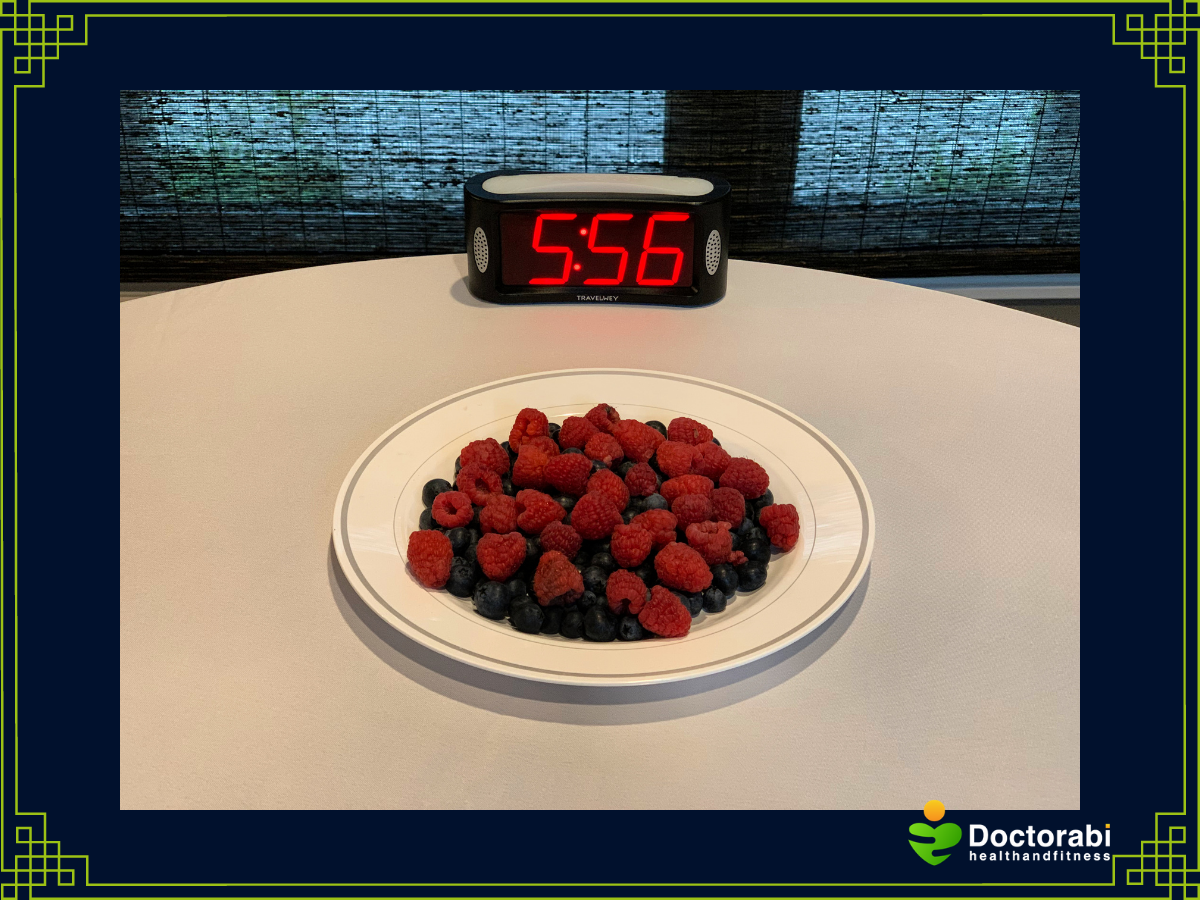First, what is Intermittent fasting? It is an eating schedule that alternates periods of eating with periods of fasting. Some people call it intermittent fasting diet, but this is not a diet per se. It is more of an eating plan. You should consider intermittent fasting if your goal is to maintain a healthy weight and a healthy lifestyle.
The word diet makes me anxious. My mind automatically goes to a restrictive diet with so many things to think about, including counting calories, avoiding certain foods, eating like a bird, etc. These negative associations produce stress and anxiety. Therefore, if you dread the word “diet,” you may want to consider intermittent fasting.
Don’t get me wrong. There are some very effective diets out there to help people reach and maintain their health and weight loss goals. But are they sustainable? While we are trying to lose weight, are our bodies getting the nutrients they need? Are these dietary practices causing havoc to our kidneys, liver, or other organs in our bodies? Instead of focusing on a diet, we should pay close attention to maintaining a nutritious diet and a healthy weight. Whatever diet you choose, and there are tons of them, do your research well to ensure that it is the best diet for you.
14 reasons to consider intermittent fasting
1) It is an eating pattern and not a diet.
2) It is spiritual. Most religions, including Christianity, Islam, Judaism, and Buddhism, recommend and practice fasting.
3) It is easier to sustain because it does not require much planning.
4) It is an easier way of purposefully reducing calories without having to count calories.
5) It is pretty flexible. There are different ways to practice intermittent fasting, and you can switch from one method to another if you experience a plateau.
6) It is natural. You are already fasting when you are asleep or on days you are so busy that you forget to eat.

7) It is free. You don’t need to pay me or anyone else for this. You don’t need a subscription to some elite diet group to do this.
8) It keeps you in control. You don’t have to wait for someone to tell you what you can eat and when you can eat. It’s your life, your body, your health. There is something very empowering about choosing and being in control of your own diet and meals.
9) It is generally safe. In a review of 27 trials on intermittent fasting, no adverse events were reported.
10) It can help your body resist disease and cope with stress better.
11) It gives you more free time. If you like deliciously cooked meals like me, you know it takes time to craft a delicious, healthful meal. Imagine having to cook once a day instead of 3 times a day, or every other day instead of daily. You can use all the extra time you save from not cooking, eating, and cleaning to do other things you love doing, like exercising. Okay, if you don’t love to exercise, you can read a book, take a relaxing bath, meditate, hang out with friends, or do whatever else makes you happy.
12) It makes you less hungry. This may seem counterintuitive because many people fear that they will be hungry if they skip meals. The fear of hunger and its side effects is the number one reason why many people do not want to give intermittent fasting a try. Here is how it works – going without food for about 12 hours causes your body to use up all of its glucose supplies, after which fat burning begins. When your body is burning fat for fuel, one of the metabolic products produced is ketone bodies. Ketone bodies are known to blunt the appetite, so you do not feel hungry. When you eat fewer meals, you also have fewer blood sugar highs and lows, resulting in less hunger.
13) It improves your palate. Eating less frequently often leads to a greater appreciation for healthy foods. After a fast, any food inevitably tastes better. You can use this opportunity to eat those healthy vegetables you don’t enjoy eating. I promise you that they will taste better after your fast!

14) It is associated with numerous health benefits. Research into the health benefits of intermittent fasting is still in the early stages. Most are animal studies, though there are some human studies already completed and some in process. These benefits include:
i) Weight loss. In a review of several studies, intermittent fasting resulted in weight loss, ranging from 0.8 percent to 13 percent of baseline body weight and an average reduction in BMI of 4.3 percent.
ii) Reduced inflammation – Recent evidence suggests that systemic inflammation in the body is a key driver of many common diseases such as cancer, heart disease, asthma, arthritis, obesity, diabetes, Alzheimer’s disease, Crohn’s disease, etc. Intermittent fasting can help reduce inflammation in your body from causes such as high blood sugar, unhealthy foods, obesity, and oxidative stress. It can also lead to a reduction in the activity of some immune cells that promote inflammation. Ultimately, Intermittent fasting can help ameliorate different lifestyle-related disorders such as diabetes, cardiovascular disorder, cancer, antioxidant stress, and renal diseases.
iii) Lowered blood pressure. Even without weight loss, intermittent fasting has been shown to lower blood pressure in human subjects.
iv) Lowered insulin levels and increased insulin sensitivity. Intermittent fasting can help reverse prediabetes.
v) Improved brain health. Improved brain function, slowing of the brain aging process, and better recovery from stroke have been shown in animal models.
vi) Reduced cancer risk has been demonstrated in animal studies.
vii) Increased production of growth hormone. Growth hormone can help improve bone density, increase muscle mass, and lower body fat levels.
viii) Lowered cholesterol and LDL numbers. Intermittent fasting can help lower your total cholesterol and LDL levels and increase your good cholesterol levels.
As you can see, the health benefits alone could be another blog topic, but I have included them here as a bonus. All in all, you are getting over 20 reasons to consider intermittent fasting.

Is intermittent fasting right for you?
Intermittent fasting is safe for most people. However, it is not generally recommended for you:
1) If you have a history of eating disorders like anorexia and bulimia.
2) If you have advanced diabetes or are on medications for diabetes.
3) If you are pregnant or breastfeeding.
4) If you are under the age of 18.
5) If you are underweight or need to gain weight to be at your best weight.
6) If you are on multiple medications.
If you fall into any of these categories, other conventional diets or healthy eating patterns might best fit your health needs. Again, everyone’s health journey is different, and no “one size fits all.”
What are the side effects of intermittent fasting?
Despite all its health and other benefits, intermittent fasting has its drawbacks. These drawbacks are not life-threatening but can be annoying. Most of the side effects of intermittent fasting occur with other forms of diets or calorie restrictions too. Some of these are:
1) Brain fog – This is usually at the beginning before your body adapts to eating less frequent meals.
2) Mood swings – You may experience some sadness or anxiety, especially if you use food to deal with your emotions.
3) Binge eating – It is quite possible to consume more calories in the 6 hour eating period than you would have if you ate throughout the whole day. Therefore, you still need to be mindful of the amount of food and the quality of foods you consume during your eating window.
4) Interruption of your social life – Be prepared to answer questions when your friends or colleagues at work invite you to lunch or a meal that falls outside of your eating window.

5) Preoccupation with food – Initially, you may be counting the hours till your next meal and thinking about what and how much you will eat after your fasting window. This focus on food gets better with time, as those that practice intermittent fasting often report less preoccupation with food.
6) Gastrointestinal issues such as diarrhea and bloating – This usually occurs after a longer fast. Eating a small meal after your fast can help alleviate these symptoms.
7) Fatigue and dizziness – You may experience these in the early phase of intermittent fasting because your body needs time to get used to using ketones instead of glucose.
8) Hormone imbalance may occur with excessive calorie restriction. This imbalance may manifest as menstrual irregularities. The important thing is knowing your body and finding that “calorie sweet spot” where your body functions optimally while your goals are being met. And goals differ for different people. Goals could be weight loss, overcoming insulin resistance, lowering blood pressure, and so on.
The good news is that most of the side effects get better with time. You only have to pull through the initial week or two and allow your body to adapt to these changes.
Stress and you
Consider intermittent fasting a form of stress that you put on your body. I know stress usually has many “negative” connotations, but some stress is essential for growth. And that is true in every area of life. When you go through the stress of learning and educating yourself, you become knowledgeable and better equipped for your career. Spiritually, adversity, which is a form of stress, produces growth. In the fitness world, you put some stress on your muscles, and it causes them to grow. So, don’t always run away when you hear the word “stress.” Embrace it, and you will gain something from it. We only need to find the right amount of stress to produce positive changes without any harmful effects.
If you have read this article and want to start Intermittent fasting, check out “Intermittent Fasting: A Step-by-Step Guide,” where I take you through a step-by-step process on how you can start intermittent fasting.
Yours in health and fitness,
Doctor Abi.

